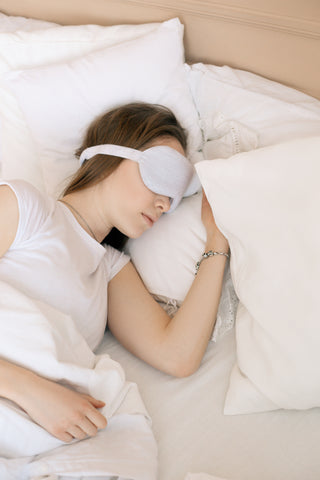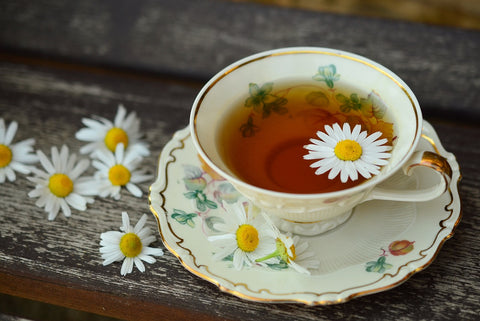Sleep is critical to our health and well-being. It is a cornerstone of overall health and affects many aspects of our lives, including physical health, mental well-being, state of mind, and even work performance.
What is a sleep disorder
The term "sleep health" refers to a number of healthy sleep habits that can improve our ability to fall asleep and stay awake. At the opposite end is sleep disorder, which is a condition where sleep is disturbed and insufficient to support daily functioning and general well-being. There are different types of sleep disorders, and they can affect sleep in different ways.
a) Insomnia is a disorder characterized by difficulty falling asleep or staying asleep, despite the existence of suitable conditions for sleep
b) Apnea: It is a disorder where, due to breathing problems during sleep, the person is led to frequent interruptions of his breathing and consequently to frequent interruption of sleep.
c) Leg tremors during sleep: It is a condition where irregular movements of the legs, during sleep, cause awakening or difficulty in maintaining sleep. Leg tremors during sleep, also known as RLS, is a medical problem that can cause discomfort and serious sleep problems.
d) Narcolepsy: It is a disorder characterized by extreme sleepiness during the day, despite adequate sleep at night.
Stages of sleep: NREM & REM

It is important to know that sleep is divided into two main stages in order to adopt the ideal method of relaxation: the non-eye movement stage (NREM) and the eye movement stage (REM).
The NREM Stage (Non-Rapid Eye Movement) has correspondingly 3 sub-stages:
Stage 1: This is the startup stage, where sleep is light, and you can easily wake up. It only takes a few minutes.
Stage 2: Sleep deepens, and waves of sleep called "sea waves" occur. It is more difficult to wake up from this stage.
Stage 3: It is the stage of deep sleep, where the waves are closer to what we have during wakefulness. During this stage, the body renews itself and cells are replenished.
REM (Rapid Eye Movement) Stage:
This is the stage where we usually dream. During REM, eye movements are rapid, and brain renewal and memory coordination occur.
How I achieve better sleep

Some recommendations for improving sleep in all its stages include a series of actions such as maintaining a consistent sleep schedule, creating a comfortable and dark bedroom atmosphere, adopting relaxation and calming habits such as prayer and meditation, reading, suitable music, increasing the overall consumption of melatonin, iron, folate, and magnesium in the diet and through supplements, relaxing biofunctional drinks containing valerian and chamomile etc.
However we have formulated a 5 step sleep strategy:
Get off the bed (!?)
You need to disconnect the concepts of bed and insomnia. If you are in bed struggling to fall asleep for hours without success, it is wise to get up and engage in some other leisurely activity until sleepiness occurs.
You will only retire to bed when you feel you are ready for sleep, otherwise you can repeat the process.
As long as you stay in bed without sleeping, you automatically associate that particular space with difficulty sleeping and gradually it will be more and more difficult for you to relax and fall asleep in your bed.
Military relaxation
The military sleep method is a trick that some soldiers follow to fall asleep quickly, even under high stress conditions. The idea is that if you relax all the muscles in the body. sooner or later you will relax too.
In order to achieve this muscle relaxation what we need to do in essence is to gradually tighten all the muscles in our body one by one and then relax them.
Starting from the legs, we stretch them, tighten the fingers, soles, calves, quadriceps and after a few seconds we relax. We repeat the process from bottom to top for all the muscles, even the eyelids.
Circadian rhythm
The human body follows an internal timekeeping system known as the circadian clock. This internal clock regulates the body's natural "circadian or circadian rhythm," daily sleep-wake cycles, hunger and digestion, hormonal activity, and other bodily processes. Most circadian rhythms reset automatically every 24 hours. Circadian rhythms are driven by physical cues that indicate we need to stay awake, such as exposure to light, interaction with people, and scheduled meal times, etc.
Circadian rhythms regulate the production of different hormones throughout the 24-hour cycle. When the sun rises in the morning, the body produces cortisol, a hormone that makes us feel refreshed and alert. After waking up, a healthy person will feel increasingly tired throughout the day until the sun goes down, when the feeling of fatigue peaks. As the sun begins to set, the pineal gland will release melatonin, a hormone that reduces wakefulness and alertness.
Our sleep rhythm evolves and changes with age. For example, older people tend to sleep and wake up earlier in the day than younger people.
But what does a healthy circadian rhythm include:
- Wake up at the same time every day. The body learns to adapt and respond obediently.
- Bright light. Especially for people whose work causes them to wake up early in the morning before sunrise, exposure to sufficient light helps to reorient the circadian rhythm.
- Melatonin Increase. In addition to the natural hormone produced in the pineal gland, melatonin is also available in prescription and over-the-counter supplement form. Melatonin supplements were not developed to treat insomnia, but to help rearrange circadian rhythms.
- Meal plan. The sleep schedule is completely connected to the schedule and times of our diet.
Limit stressful activities before the afternoon
Imagine you are lying in bed after a long day and have a thousand thoughts. This is usually called nocturnal anxiety and very often it can lead to us staying awake all night.
Managing this stress requires gradually relaxing intense situations already before the afternoon and adopting a calm routine. Here are some tips we can implement into our bedtime routine:
Use appropriate natural remedies and preparations

Indicatives:
- Melatonin: Melatonin is a natural hormone that controls the Melatonin supplements may help during times of increased difficulty sleeping.
- Valerian: Valerian is a plant substance used to increase relaxation and reduce tension.
- 5-HTP (5-Hydroxytryptophan): 5-HTP is a product used to increase serotonin levels in the brain to help regulate sleep.
- Lysine: Lysine is an amino acid that can help reduce anxiety and improve sleep.
- Magnesium: Magnesium is an essential mineral that can help relax muscles and improve sleep.
Disclaimer :)
The information in the article should not be used to diagnose or treat health problems and those seeking medical advice should always consult a licensed physician or pharmacist.

